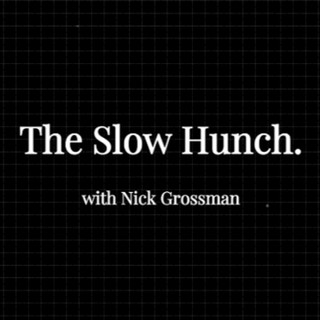In this episode of The Slow Hunch, I spoke with Alex Komoroske, the co-founder and CEO of Common Tools. Alex has spent his career thinking about how individual incentives can add up to significant collective outcomes.
Before starting Common Tools, he spent more than a decade at Google leading product management for the Chrome web platform, ambient computing, AR, and Search, and later served as Head of Corporate Strategy at Stripe.
We traced his slow (emergent) hunch from an early fascination with Wikipedia, through his years building internet-scale systems at Google, to his current work rethinking how AI is architected.
A big part of our conversation centered on emergence: why the most durable systems grow from the bottom up, and what that means for product design, org culture, and the future of technology - especially AI.
We also spoke about the hidden security risks in today’s AI ecosystem: why “chat” may not be the defining paradigm for complex work, how fusing data to apps risks locking us into an AI monoculture, and why policies should travel with data if we want healthier emergent effects.
It’s always fun catching up with Alex. Hope you enjoy!
Chapters:
- 00:00:00 Cold open: the inevitability of transformers
- 00:03:32 Why emergence is so powerful
- 00:08:49 Alex’s early influences
- 00:10:35 The emergent dynamics of Wikipedia
- 00:13:15 The role of “folksonomies”
- 00:17:33 Concave systems vs convex systems
- 00:20:41 Alex’s time at Google
- 00:24:27 How small signals scale
- 00:28:58 Evolutionary algorithms in AI
- 00:30:52 Understanding data bias and rethinking how AI is architected
- 00:41:02 The same-origin trap and the limits of app-centric software
- 00:47:42 The future of contextual apps
- 00:49:03 Aggregators and the tyranny of the marginal user
- 00:52:08 Why prompt injection is so dangerous
- 00:55:23 The inherent security risks of MCP and vibe coding
- 00:59:32 A new constitution for AI: policies attached to data
- 01:03:17 The promise of confidential compute
- 01:11:00 Why Alex is optimistic about AI's Future



